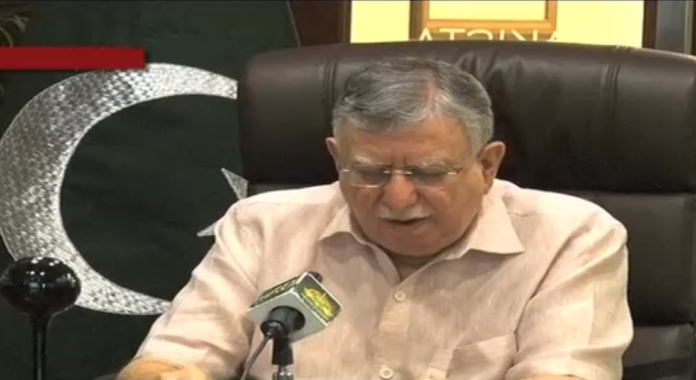ISLAMABAD: Finance Minister Shaukat Tarin, while chairing a meeting of National Price Monitoring Committee (NPMC) on Monday, directed to import another 100,000 of sugar in one month in addition to an equal amount of the commodity arriving in Pakistan by mid of August.
The finance secretary briefed the meeting about a slight increase of 0.07 per cent in the weekly Sensitive Price Index (SPI) indicating price stability as compared to previous weeks.
The committee noted that year-on-year weekly inflation was coming down for the past two months from a high of 17.23pc on May 20, 2021 to 12.28pc on July 8, which is a significant decline in SPI.
Similarly, the Consumer Price Index (CPI) released on July 1 showed an annual inflation at national level at 8.9pc which was down from 10.74pc a year ago. Urban and rural inflation stood at 8.15pc and 10.05pc as compared to 10.17pc and 11.63pc, respectively. “Clearly, the inflation is coming down across all measures,” an official statement said.
While reviewing the year-on-year and week-on-week inflation trends, the finance minister asked the respective district administrations and departments to take stern measures to keep the prices of essential items, including vegetables, in check on Eidul Azha to eliminate profiteering.
Tarin constituted a working group under the NPMC comprising provincial chief secretaries, secretary finance division and representatives of the Pakistan Bureau of Statistics (PBS), Ministry of National Food Security and Research (NFS&R) and other relevant departments to work out measures for bringing price stability in basic commodities by using mystery shopping exercise and building strategic reserves of wheat, sugar, pulses, ghee, tomatoes, onions and potatoes to eliminate undue profit margins and ensure availability of these items at affordable prices.
The finance minister directed the PBS to present a detailed variance analysis vis-a-vis weekly SPI highlighting food prices prevailing across mainstream cities and districts for real-time comparison. The data would be used by the respective provincial administrations and departments to ensure that notified rates are being followed across the board and help minimise price differential between farm gate and retail rates.
The Ministry of Industries and Production secretary told the committee that after increase in prices of soya bean and palm oils, the international prices have registered a decline.
Tarin directed the Ministry of Industries and Production, the Competition Commission of Pakistan (CCP) and the Federal Board of Revenue to take requisite actions to ensure that current decline in the international prices of edible oil was passed on to the domestic consumers soon.
The CCP chairperson said the commission had already undertaken an inquiry in the edible oil and ghee sector to ascertain information and crosscheck facts regarding alleged collective fixing of retail prices of various products of cooking oil and ghee for different market segments.
The meeting noted an uptick of 0.07pc in price of the foods, which mostly remained under use on daily basis and grouped in the weekly SPI. Participants, however, expressed their satisfaction over the nominal increase in the prices in the wake of downward trend in weekly SPI over the past two months.
The CCP also shared findings about presence of 4,000 middlemen across 36 districts in Punjab dealing with the prices of basic vegetables.
After reviewing the findings of the CCP, the finance minister directed to build a model framework in which DCs/ACs are assigned to monitor a specific number of middlemen to eliminate price manoeuvring. “Such model can be replicated in other provinces to minimise the price differential across the whole chain ie from farm gate to retail prices of basic commodities.”




